Sally Lawrence remembers brushing her daughter Skylar’s hair away from her face as she stirred, restless in her car seat.
The two-and-a-half-year-old had been full of energy during the weekend away with her parents, her twin sister Rhainer and her four-year-old brother Navaro.
But within a few hours of arriving back to their home in Darwin, Skylar was very unwell.
She had a high fever, diarrhoea and was vomiting. When three small bruises appeared on her groin, buttock and neck, her parents rushed her to Royal Darwin Hospital.
Staff recognised the signs of meningococcal immediately and were soon preparing to put Skylar into an induced coma.
“She was talking all the way up to when they were putting her into a coma. Saying “no more, Daddy. No more,” Skylar’s father, Ash Lawrence, said.
“To watch how quickly the disease took over … it was the most horrific thing I’ve ever seen,” Mr Lawrence said.

“The way our day started, on a mini-holiday, we never thought it would end like this,” Mrs Lawrence said.
The meningococcal B vaccine (Bexsero) has been available in Australia since August 2014, but is not included in the National Immunisation Program (NIP).
The Lawrences said they had not known the free meningococcal vaccine (for meningococcal C) did not protect against all forms of the disease.
“We thought we were doing everything we could to protect our kids,” Mrs Lawrence said.
“We should have at least been told … One child’s death is too many when we can protect them.”
The manufacturer’s three submissions to the Pharmaceutical Benefits Advisory Committee (PBAC) have been rejected on the basis of “clinical uncertainty” based on the evidence at the time.
The low incidence of meningococcal B in Australia coupled with the ambiguity over the vaccine’s level of protection means the vaccine is only available on private script for $120 per dose.
Though meningococcal is relatively rare, the disease was severe. Even with good access to medical care, patients with invasive meningococcal disease can rapidly deteriorate and die with little warning. About one in 10 survivors of meningococcal B develop major disabilities.
At the request of Health Minister Greg Hunt, Australia’s Chief Medical Officer has established a dedicated incident management team to look at cases of meningococcal.
A spokeswoman for the Department of Health noted a study in South Australia and funded by GSK was assessing the herd immunity effects of the vaccine, noting GSK “is encouraged to submit any new evidence that may arise from this study to support a future submission”.
“The government has committed to expediting any meningococcal B application,” the spokeswoman said.
In the meantime, a new study published on Monday found that though number of meningococcal B strains had dropped dramatically in recent years, children in their first eight months of life were at greatest risk of developing the disease.
The highest incidence was among infants under 12 months old (11.1 per 100,000), children between one and four years old (2.82 per 100,000) and adolescents aged 15-19 years (2.4 per 100,000), according to the analysis of data from the Australian National Notifiable Diseases Surveillance System.
An estimated 5 per cent of children under five with meningococcal B died, the researchers reported.
The findings prompted the researchers to recommend prioritising at-risk groups with the vaccine, particularly children at two months old.
Senior author paediatric infectious diseases professor Peter McIntyre said he hoped the paper would help doctors and parents weigh up benefits and cost of the vaccine against the likelihood their children could develop meningococcal B.
“Parents and doctors can understandably have a very emotional response to reports of children dying or suffering severe disabilities from meningococcal B,” said Professor McIntyre, from the National Centre for Immunisation Research and Surveillance for Vaccine Preventable Diseases at the Childrens Hospital, Westmead.
“For parents, the issue is not about cost-effectiveness overall but who bad is this and should I be worried about it?”
“Our paper tries to give a sense of how severe meningococcal B is, and how concerned doctors and parents should be.”
Meningococcal B is still the dominant strain nationally, though in 2017 it accounted for about half of all cases, compared to over 80 per cent over the study period.
Australia’s rates of meningococcal B were significantly higher than in Canada and the US (0.3 and fewer than 0.1 cases per 100,000 respectively between 2002-2011), which both include the B vaccine in their national immunisation programs.
A review of the impact of Britain’s decision to add meningococcal vaccine to its immunisation program found the number of cases among vaccine-eligible infants dropped by 50 per cent during the program’s first 10 months.
The British program also suggests two doses of the vaccine between six and four months offered good protection, improving its cost-effectiveness profile compared to the current four-dose schedule.
Signs of meningococcal disease are non-specific but can include sudden onset of fever, headache, neck stiffness, joint pain, a rash of red-purple spots or bruises, dislike of bright lights nausea and vomiting.
Symptoms among young children may include irritability, difficulty waking, high-pitched crying, and refusal to eat.
Skylar’s parents are determined to raise awareness about meningococcal B and advocate for the vaccine’s inclusion in the NIP via a Facebook page ‘ShareacinowithSkylar’ to help prevent other children developing the disease.
SOURCE: WA Today
